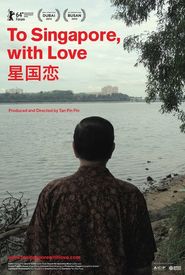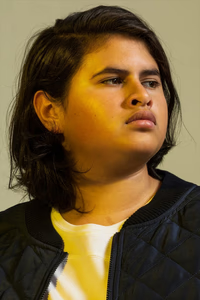Tan Pin Pin is a renowned Singaporean film director who has dedicated over two decades to capturing her country's history, memory, and representation through her thought-provoking and self-reflective works, showcasing her cinematic mastery in both local and international film festivals.
Her extensive filmography has garnered recognition at prestigious events, including the Berlinale, Busan, Hot Docs, SXSW, Visions du Reel, and the Flaherty Seminar, as well as being presented at esteemed institutions such as M+, Parasite, CUHK, Rumah Attap, Sa Sa Art Projects, Singapore Airlines, Jakarta Biennale, and Netflix.
Throughout her career, Pin Pin's work has been honored with mid-career retrospectives at RIDM in Montreal, Liberation Docfest in Bangladesh, and Dok Leipzig, solidifying her position as a prominent figure in the film industry.
Pin Pin's artistic journey began as a photojournalist, but her passion for storytelling shifted to the moving image after being inspired by Taiwanese auteur Hou Hsiao Hsien's City of Sadness. Her debut film, Moving House (1996),was made using borrowed cameras and explored the exhumation of her great-grandparent's graves and their subsequent relocation to a columbarium.
This initial endeavor led to her first film job as an assistant director for the police drama Triple Nine and a scholarship to study film at Northwestern University in the USA. Her graduation film won a Student Academy Award, propelling her toward a successful filmmaking career.
Upon returning to Singapore, Pin Pin created Singapore GaGa (2005),a film that delved into the country's soundscape, earning the accolade of being "One of the best films about Singapore" by the Straits Times. The film became the first Singapore documentary to have an 8-week sold-out theatrical run.
Her subsequent film, Invisible City (2007),received a citation from Cinema du Reel, describing it as "A witty, intellectually challenging essay on history and memory as tools of civil resistance." Her short film Pineapple Town (2015),part of the 7 Letters omnibus, served as Singapore's entry to the Oscars.
Meanwhile, To Singapore, with Love (2013),a film about Singapore political exiles, was banned by the country's censors for allegedly undermining national security. Her latest film, IN TIME TO COME (2017),is an immersive exploration of Singaporean rituals such as fire drills and mosquito fogging sessions.






























